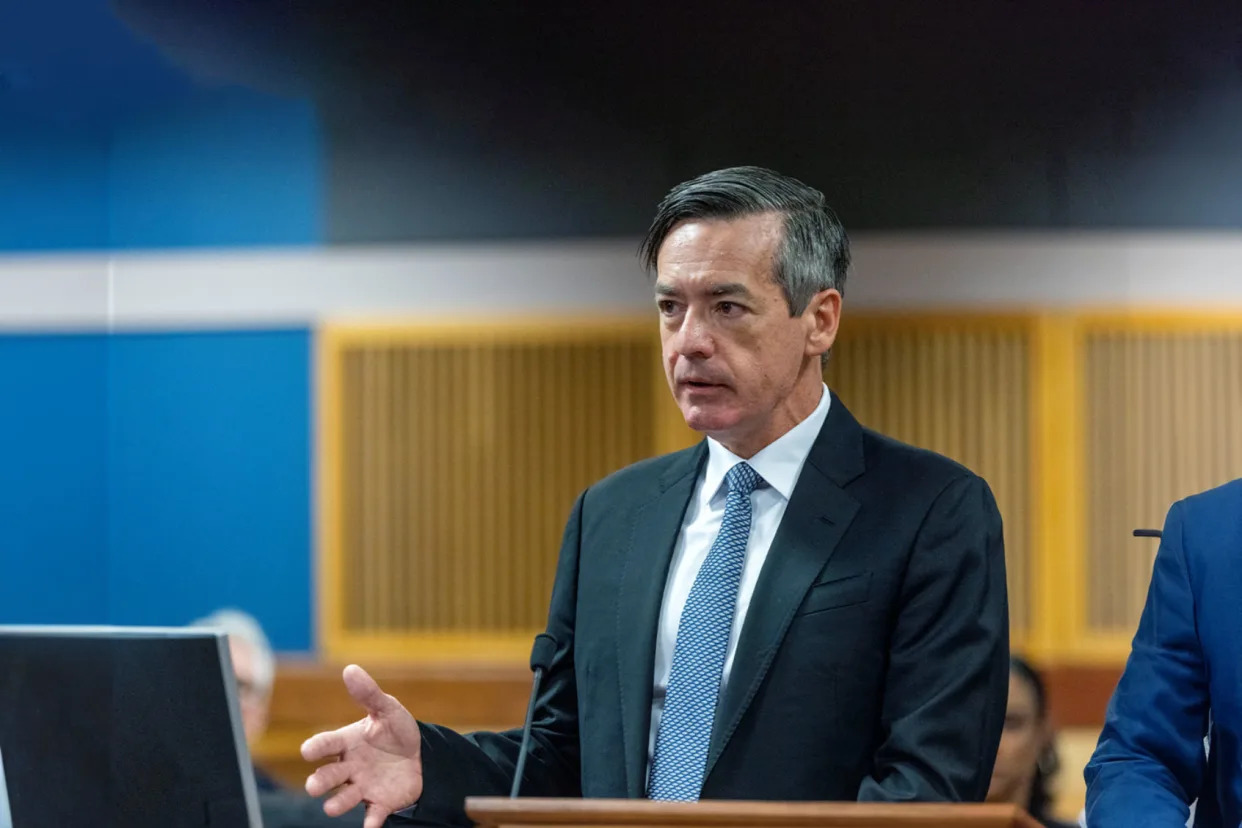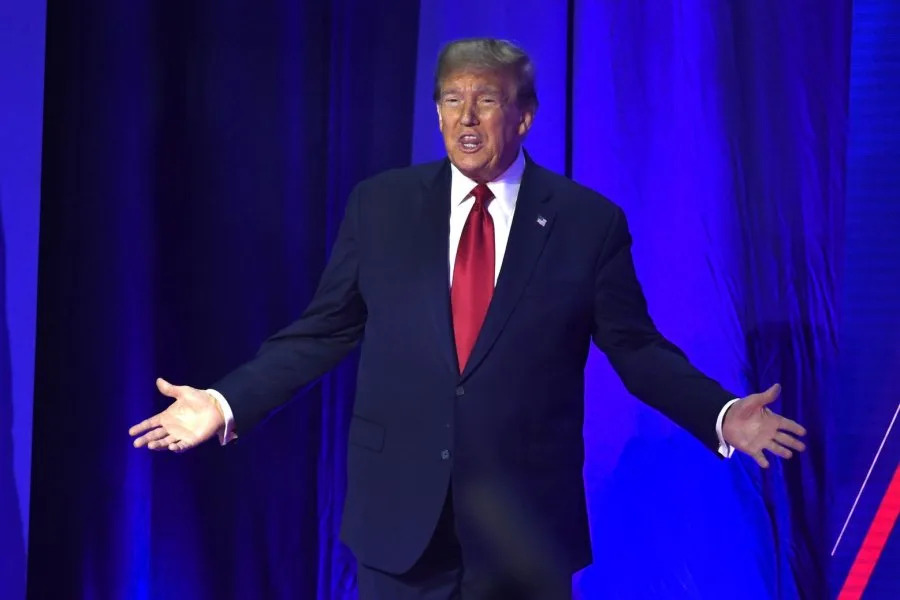Salon
“More indictments await”: Experts say Jan. 6 architect’s secret tweets may lead to “felony charges”
Igor Derysh – February 27, 2024

Right-wing attorney Kenneth Chesebro, one of the key architects of former President Donald Trump’s Jan. 6 fake elector scheme, concealed a secret Twitter account from Michigan prosecutors that was filled with posts that undercut his statements to investigators about his role in Trump’s election subversion scheme, according to CNN.
Chesebro denied having a Twitter account or any “alternate IDs” when asked by Michigan prosecutors last year, according to recordings of his interview obtained by the outlet.
But CNN’s K-FILE linked Chesebro to a secret account — BadgerPundit — based on matching details, including biographical information about his work and travels as well as his family and investments.
The posts show that before the election and days after polls closed, Chesebro promoted a “far more aggressive election subversion strategy than he later let on in his Michigan interview,” CNN reported.
Chesebro’s attorneys confirmed to CNN that the account belonged to Chesebro, calling it his “random stream of consciousness” where he was “spitballing” theories about the election but argued that it was separate from his legal work for Trump’s campaign.
“When he was doing volunteer work for the campaign, he was very specific and hunkered-down into being the lawyer that he is, and gave specific kinds of legal advice based on things that he thought were legitimate legal challenges, versus BadgerPundit, who is this other guy over there, just being a goof,” Chesebro’s attorney Robert Langford told the outlet.
Chesebro, who framed himself as a moderate go-between who was pulled in deeper by Trump’s extremist lawyers, has not been charged with any crimes in Michigan.
“Our team is interested in the material and will be looking into this matter,” a spokesman for the Michigan attorney general’s office told CNN.
Chesebro claimed to investigators that the so-called fake elector plot was just a contingency in case Trump’s team won any of the election lawsuits, which they ultimately failed to do. He claimed to Michigan prosecutors that he told the Trump team that “state legislatures have no power to override the courts.”
But BadgerPundit argued that the litigation did not matter and that Republican-controlled state legislatures had the power to send their own electors.
“You don’t get the big picture. Trump doesn’t have to get courts to declare him the winner of the vote. He just needs to convince Republican legislatures that the election was systematically rigged, but it’s impossible to run it again, so they should appoint electors instead,” BadgerPundit wrote on Nov. 7, 2020, days after President Joe Biden was projected as the election winner.
Chesebro claimed to prosecutors that he saw “no scenario” in which then-Vice President Mike Pence could “count any vote for any state because there hadn’t been a court or a legislature in any state backing any of the alternate electors.”
BadgerPundit tweeted more than 50 times that Pence had the power to count the alternate electors, according to CNN.
Chesebro also claimed that he was “misled” by the Trump campaign concealing the entire plan for him and claimed he only realized they planned to deploy the fake electors regardless of what happened with the lawsuits. But on Twitter, he shared an Atlantic article citing a “Trump legal adviser” who described the full plan.
Chesebro’s attorneys acknowledged to CNN that “there’s clearly a conflict” between some of the tweets and what he told prosecutors, but argued that some of his online theories were “inconsistent” with legal advice he gave the Trump campaign.
Though Chesebro has not been charged in Michigan, he agreed to plead guilty in the Fulton County, Ga., RICO case to one felony count and gave proffer interviews to prosecutors. Chesebro was also identified as an unindicted co-conspirator in the federal D.C. election subversion case.
“Chesebro appears to have pursued a legally perilous path in his dealings with Michigan authorities,” Ryan Goodman, a law professor at New York University, told CNN. “The Twitter posts strongly suggest Chesebro committed the crime of making false statements to investigators… his entire cooperation agreement may now fall apart.”
Goodman added that it appears that Chesebro “hid highly important evidence in the form of these social media posts from the investigators,” which could put him at “great legal risk.”
“We should have asked for clarity, and that was our screw-up,” Chesebro attorney Manny Arora acknowledged to CNN when asked about his client denying his Twitter account. Arora added that he has since provided “all the information on BadgerPundit” to investigations in “all the different states that are involved.”
But CNN legal analyst Elie Honig, a former federal prosecutor, argued that the news further undercuts Chesebro’s value to prosecutors in Georgia.
“Kenneth Chesebro is facing more legal jeopardy now, and he is not and never has been a viable cooperator for prosecutors in Georgia,” he said Monday, arguing that Chesebro’s statements to investigators were “misleading at best, outright false at worst.”
Honig called Chesebro’s attorneys’ defense “utterly nonsensical.”
“He is not a viable cooperator for the Fulton County D.A.,” Honig added. “They gave Kenneth Chesebro a softball deal. They let him plead out to probation. And the reason they gave us well, he’s cooperating, no he is not, he has not come clean. He is a failed cooperator. That’s a black eye for the Georgia district attorney as well.
Longtime Harvard legal scholar Laurence Tribe predicted that “more indictments await” following the Twitter revelation.
“Chesebro’s secret Twitter account could lead to serious felony charges in Michigan and will augment his eventual federal indictment by Jack Smith,” Tribe tweeted. “The guy is in a huge heap of trouble that his guilty plea in Georgia barely touches.”





